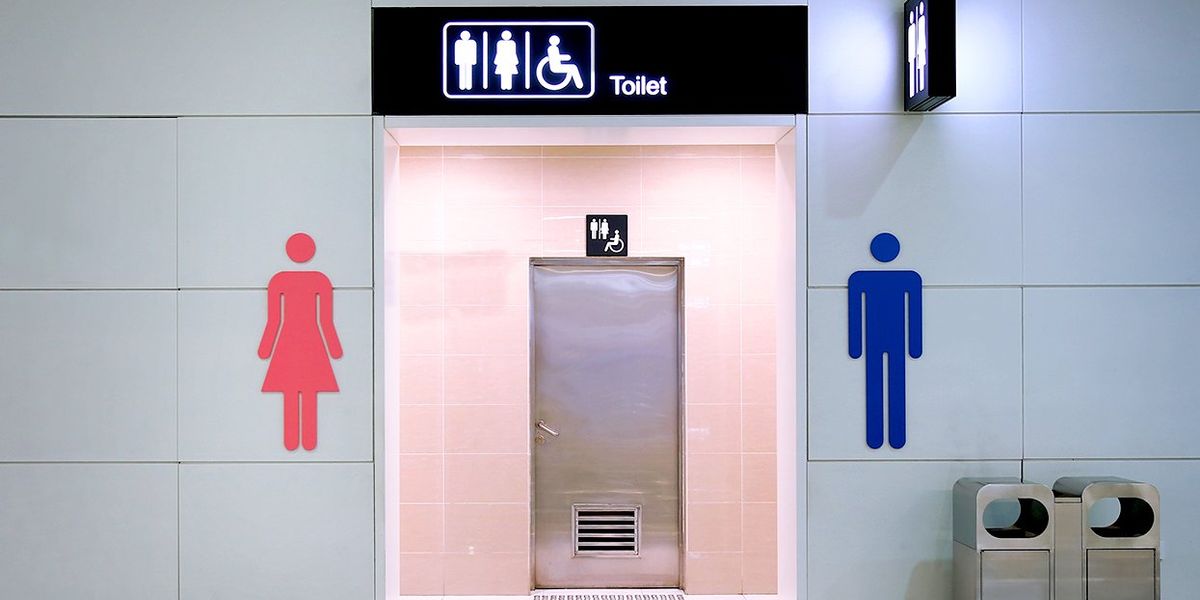Utah lawmakers pass terrifying anti-transgender bathroom policing bill
Author: Christopher Wiggins

In a rapid legislative progression, the Utah House of Representatives has passed HB 257, a contentious bill that, if signed into law by Republican Gov. Spencer Cox, would become the first anti-LGBTQ+ bathroom ban of the year. The bill aims to stop transgender students from using restrooms and locker rooms that align with their gender identity, as well as restrict access to changing rooms in government-owned or operated facilities for transgender people of all ages.
Human Rights Campaign president Kelley Robinson expressed her strong opposition to the bill in a statement.
“This bill is an invasion of the privacy of Utahns,” Robinson said. “No student should be denied access to the bathroom that aligns with who they are. No one should fear harassment in the most private of settings. Period.” Robinson also highlighted the alarming trend of similar bathroom bans being introduced across the United States, reminiscent of North Carolina’s infamous HB2.
According toThe Salt Lake Tribune, the bill underwent several changes during its legislative journey. Initially proposed as “Sex-based Designations for Privacy, Anti-bullying and Women’s Opportunities” by Republican state Rep. Kera Birkeland, the state Senate introduced two amendments before passing it with a vote of 21-8.
Related: Utah House passes bill that restricts all trans people’s use of bathrooms in the state — and threatens jail
On Friday, the House initially refused to concur with the version of the bill passed in the Senate, leading lawmakers to meet in a conference committee at noon Friday to find a compromise, the Tribune reports.
According to the paper, Birkeland explained to the House that the rejection was because of technical errors and stated that additional amendments would clarify the already complex bill. One of the changes was adding language to ensure that kids who found themselves in a bathroom that doesn’t align with their sex assigned at birth wouldn’tface criminal penalties.
The Senate and House approved the changes made on Friday, with many of the same lawmakers who initially opposed the bill voting against it.
In response to these amendments, LGBTQ+ advocacy organization Equality Utah issued a statement expressing gratitude for the lawmakers’ responsiveness and emphasizing their position that transgender Americans should have the freedom to access facilities within public spaces.
“Today, Utah legislators continued to make important changes to HB 257, before passing it and sending the bill to the Governor for signature. The Senate and House met in a conference committee to agree to a new substitute that would ensure that children in public schools will never face criminal penalties for being in bathrooms that do not correspond with their gender-identity. These are issues we raised and asked legislators to amend. We are grateful for their responsiveness,” the group wrote.
Equality Utah also expressed regret for the fear and distress experienced by many in the LGBTQ+ community as they encounter bills of this nature.
“We still hold the position that transgender Americans have the freedom and liberty to access facilities within public spaces,” the group wrote.
If signed into law, HB 257 would change the state’s legal definitions of “female” and “male” to categorize Utahns by the reproductive organs they were born with. It defines a “women’s bathroom” and “men’s bathroom” as spaces exclusively designated for females and males, respectively.
The bill prohibits transgender people from using “changing rooms,” which include locker rooms, showers, and dressing rooms, that correspond to their gender identity in government-owned and run buildings, extending the ban to public schools. Limited exceptions are made for some trans adults who have undergone bottom surgery and amended their birth certificates, a legal impossibility for individuals who were born in certain states.
Notably, this marks the third consecutive year in which Utah has passed restrictions targeting the transgender community, the Tribune reports.
Cox has not yet clearly indicated whether he will sign the bill into law.
According to the Tribune, under the Utah Constitution, the governor has 10 days to decide on signing a bill into law, after which, if no decision is made, the bill automatically becomes law.
Similar legislation in other states has faced legal challenges, and HB 257 may see legal disputes to determine its constitutionality.
From Your Site Articles
Original Article on The Advocate
Author: Christopher Wiggins



